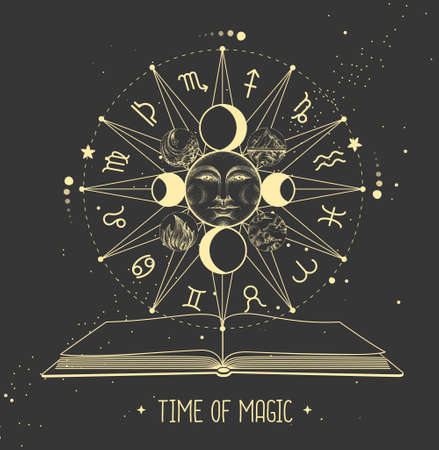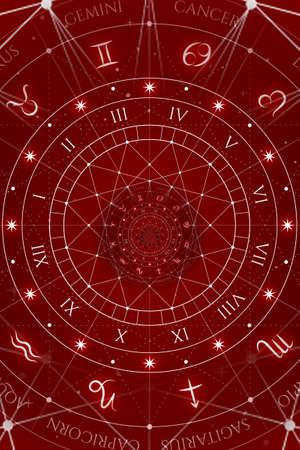1. Introduction to Astrology’s Popularity in the United States
Astrology holds a unique and pervasive presence within mainstream American culture, reflecting both a fascination with the cosmos and an ongoing search for personal meaning. From daily horoscope columns in major newspapers to trending astrology memes on social media platforms like Instagram and TikTok, references to zodiac signs and planetary alignments have become deeply woven into the fabric of everyday life. This cultural saturation is not limited to younger generations; people of all ages frequently discuss astrological compatibility, consult birth charts, or even make decisions based on celestial events. The entertainment industry amplifies this influence, as celebrities openly share their star signs and even endorse astrological products. As a result, astrology has evolved from niche interest to widespread phenomenon, shaping conversations, relationships, and even consumer behavior across the United States.
2. Misunderstanding Sun Signs: More than Your Zodiac Meme
One of the most prevalent astrological misconceptions in mainstream American culture is the overemphasis on sun signs as the sole determinant of personality. Many people identify themselves and others with phrases like “Im such a Leo” or “Shes a total Virgo,” often inspired by popular memes and daily horoscopes on social media. However, this approach overlooks the intricate complexity of astrology, reducing it to entertainment rather than a nuanced system.
The Oversimplification of Sun Signs
In astrology, the sun sign is only one component of a full natal chart, which also includes the moon sign, rising sign (ascendant), and placements of other planets. While your sun sign represents your core identity and ego, it does not account for emotional responses, communication style, or life motivations. Treating sun signs as catch-all labels ignores this depth and can lead to misunderstandings about both astrology and individual personalities.
Key Differences Between Sun Sign and Full Natal Chart
| Aspect | Sun Sign | Full Natal Chart |
|---|---|---|
| Focus | Core identity, basic traits | Comprehensive personality map including emotions, communication, relationships, ambitions, and more |
| Number of Factors Considered | 1 (Sun) | 10+ (includes Moon, Mercury, Venus, Mars, Ascendant, etc.) |
| Cultural Reference | Popular memes, horoscopes in magazines/newspapers | Astrological consultations, in-depth analysis tools |
| Accuracy for Individual Personality | Generalized and often vague | Highly personalized and detailed |
The Social Impact of Sun Sign Stereotyping
This oversimplification has led to stereotyping behaviors: people may assume all Scorpios are secretive or all Geminis are two-faced based solely on their sun sign. Such generalizations can influence social interactions and self-perception in ways that dont reflect reality. In fact, dismissing the rest of someones chart is akin to judging a book by its cover—missing out on crucial layers beneath the surface.

3. Confusing Astrology with Astronomy
One of the most persistent misconceptions in mainstream American culture is the confusion between astrology and astronomy. While both fields deal with celestial bodies, their purposes, methodologies, and cultural significance could not be more different. Astronomy is a rigorous scientific discipline that studies planets, stars, galaxies, and the universe through observation, mathematics, and empirical analysis. In contrast, astrology interprets the supposed influence of planetary positions on human affairs—a practice rooted in ancient traditions and symbolism rather than empirical science.
This confusion is often perpetuated by popular media, where horoscopes are sometimes discussed in the same breath as astronomical phenomena like eclipses or meteor showers. For many Americans, the casual use of terms like “star sign” or “planetary alignment” blurs the line between scientific fact and astrological belief. This mix-up shapes public perception in significant ways. For example, polls have shown that a surprising number of Americans are unsure whether astrology is considered a science, reflecting a broader lack of clarity about what constitutes scientific knowledge versus pseudoscience.
The educational system plays a role as well. While astronomy is included in school science curricula, astrology often enters classrooms only through pop culture or student interest groups—rarely as an object of critical examination. As a result, students may emerge with only a superficial understanding of both subjects, reinforcing misconceptions that persist into adulthood.
Ultimately, the frequent conflation of astrology and astronomy has implications for public trust in science and critical thinking. It also highlights how American culture negotiates the boundary between entertainment, personal belief, and empirical reality. To address these misconceptions effectively, there must be ongoing efforts to promote scientific literacy while respecting diverse cultural interests in astrology as a form of meaning-making and self-reflection.
4. Stereotyping and Over-Simplification in Horoscopes
In mainstream American culture, horoscopes are often encountered as light entertainment—something to browse in a magazine, share on social media, or discuss casually among friends. This casual treatment leads to two significant issues: the stereotyping of personality types based solely on Sun signs, and the over-simplification of complex astrological systems into bite-sized advice or predictions. While this approach can be fun, it perpetuates misconceptions about astrologys depth and purpose.
Horoscopes frequently rely on broad generalizations that assign a fixed set of traits to each zodiac sign. For example, Geminis are labeled as “two-faced,” Scorpios as “intense,” and Capricorns as “workaholics.” These descriptions ignore the complexity of individual personalities and reduce people to one-dimensional caricatures. The table below highlights some common stereotypes associated with each Sun sign:
| Zodiac Sign | Stereotype | Common Media Phrase |
|---|---|---|
| Aries | Impulsive, aggressive | “Always ready for a fight” |
| Taurus | Stubborn, materialistic | “Loves comfort above all” |
| Gemini | Two-faced, indecisive | “Cant make up their mind” |
| Cancer | Overly emotional, clingy | “Wears their heart on their sleeve” |
| Leo | Dramatic, attention-seeking | “Must be the center of attention” |
| Virgo | Obsessive, critical | “Nitpicks everything” |
| Libra | Superficial, indecisive | “Can’t choose sides” |
| Scorpio | Mysterious, vengeful | “Holds grudges forever” |
| Sagittarius | Flighty, tactless | “Always chasing adventure” |
| Capricorn | Workaholic, cold-hearted | “All business, no play” |
| Aquarius | Aloof, eccentric | “Lives in their own world” |
| Pisces | Overly sensitive, escapist | “Lost in dreams” |
This table illustrates how popular American media and daily horoscopes reinforce simplistic and sometimes negative perceptions of each sign. These stereotypes can influence how individuals see themselves and others—sometimes leading people to embrace limiting beliefs about what they can or cannot do based solely on their birth date.
The entertainment-driven reduction of astrology also encourages deterministic thinking. When horoscopes predict specific events—like “expect conflict at work today” or “romance is on the horizon”—readers may internalize these forecasts as inevitable truths. This can create a psychological phenomenon known as a self-fulfilling prophecy, where belief in the horoscopes prediction subconsciously influences behavior to make it come true.
The widespread oversimplification of astrology in American culture therefore not only misrepresents the original intent of astrological practice but also risks fostering rigid stereotypes and deterministic attitudes. A more nuanced understanding requires moving beyond daily horoscopes and recognizing the complexity inherent in genuine astrological analysis.
5. Astrology and Its Association with Superstition
In mainstream American culture, astrology is frequently lumped together with superstition, a categorization that carries significant cultural baggage and shapes public perceptions in subtle but powerful ways. Despite astrology’s historical roots and its complex symbolic language, many Americans view it as little more than a collection of unscientific beliefs or lucky charms—akin to avoiding black cats or knocking on wood. This association often emerges in popular discourse through phrases like “I don’t believe in that stuff” or “It’s just for fun,” reflecting a broader skepticism toward practices not grounded in empirical science.
This framing has important implications. By labeling astrology as mere superstition, mainstream society dismisses the nuanced roles astrology can play in personal reflection, community building, and cultural identity. The reduction of astrology to a superstitious pastime undermines legitimate discussions about why so many people seek meaning and guidance from the stars, especially in uncertain times. It also obscures the fact that for some individuals and communities, astrology operates less as a predictive tool and more as a framework for introspection and understanding human nature.
Moreover, the American tendency to conflate astrology with superstition intersects with broader debates about rationality, scientific authority, and what counts as valid knowledge. In this context, those who engage with astrology may feel pressured to defend their interests or downplay their beliefs to avoid being seen as irrational or naive. This dynamic can stifle open conversation about the psychological, social, and even spiritual functions that astrology fulfills in contemporary life.
6. The Influence of Social Media on Astrological Beliefs
Social media platforms like Instagram and TikTok have become powerful vehicles for the dissemination of astrological content in mainstream American culture. These platforms are characterized by their rapid information cycles, visual storytelling, and viral trends, all of which shape how astrology is perceived and practiced among their predominantly young user bases. On one hand, social media has democratized access to astrological knowledge, providing bite-sized explanations and daily horoscopes that make astrology feel accessible and relevant. On the other hand, this accessibility often comes at the cost of nuance, accuracy, and critical thinking.
The Spread and Reinforcement of Misconceptions
Many popular astrology accounts on social media focus on sun sign horoscopes, memes, and generalized traits that reinforce oversimplified views of astrology. The algorithmic nature of these platforms rewards catchy, shareable content—often at the expense of depth or context. As a result, common misconceptions such as “all Geminis are two-faced” or “Mercury retrograde ruins everything” are repeated so frequently that they become entrenched cultural beliefs. This cycle can create echo chambers where users see only content that aligns with their preexisting ideas, making it harder to challenge inaccuracies.
The Role of Influencers and Virality
Influencers play a significant role in shaping astrological discourse online. Many lack formal training in astrology but command large followings due to their relatable content or entertaining delivery. Viral challenges—like “Rate Your Exes by Their Zodiac Sign” or “Which Signs Are Most Toxic?”—encourage stereotyping and can trivialize complex astrological principles. This influencer-driven environment can amplify both enthusiasm for astrology and the spread of myths about what astrology can (or cannot) predict.
Challenging Stereotypes Through Digital Communities
Despite these challenges, some creators use social media to debunk myths and promote more nuanced understandings of astrology. Long-form video essays on YouTube, carousel posts on Instagram, and educational threads on Twitter offer deeper dives into topics like birth charts, planetary transits, and the historical origins of astrology. These efforts foster digital communities where skepticism and critical engagement are encouraged alongside belief. However, such content often struggles to gain the same viral traction as sensationalized posts.
Systemic Impact on American Cultural Attitudes
The interplay between entertainment value and informational accuracy on social media has systemic effects on how Americans view astrology. While platforms provide spaces for personal expression and identity exploration through astrological language, they also perpetuate myths that blur the line between science and pseudoscience. As social media continues to evolve, its influence will remain central to both the persistence of astrological misconceptions and the potential for more informed public discourse.


